Space

Educators and Parents, Sign Up for The Cheat Sheet
Weekly updates to help you use Science News Explores in the learning environment
Thank you for signing up!
There was a problem signing you up.
-
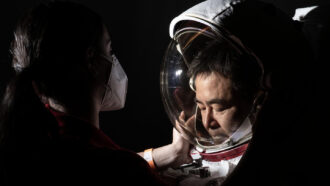 Health & Medicine
Health & MedicineSwollen chambers in astronauts’ brains may take 3 years to recover
How long astronauts spend in space and the time since their last mission affects how much fluid-filled chambers in their brains expand while in space.
-
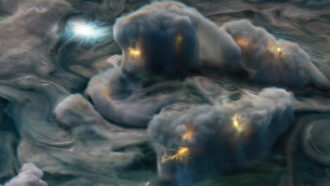 Space
SpaceLightning dances through Jupiter’s skies much like it does on Earth
Data from NASA’s Juno spacecraft hint that Jupiter’s lightning extends in jagged steps as it does on Earth.
By Nikk Ogasa -
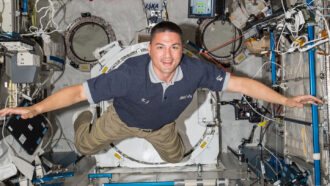 Space
SpaceThis astronaut took a winding journey into space
Astronaut Kjell Lindgren has flown into space twice and performed more than 100 scientific experiments. He is now part of the crew planning a return to the moon.
-
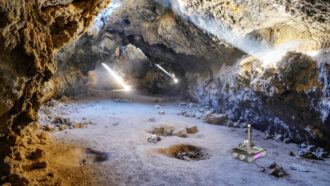 Space
SpaceFairy tale inspiration could help rovers explore risky places
Taking a cue from Hansel and Gretel, scientists propose a way for rovers to send back data from treacherous terrain.
-
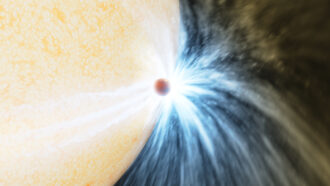 Planets
PlanetsIn a first, telescopes have caught a star eating a planet
A burst of light and a cloud of dust are signs that a distant star swallowed a giant planet.
-
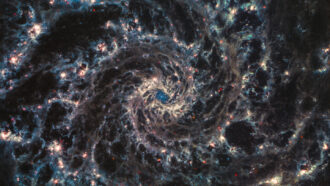 Space
SpaceJames Webb telescope catches newborn stars sculpting spiral galaxies
Dark voids riddle the galaxies, revealing new details about how stars alter their environments.
-
 Space
SpaceHere’s why the moon must get its own time zone
But should moon time be like Earth time — or quite different? At issue: The moon’s lesser gravity will make seconds there tick faster than on Earth.
By Tammy Awtry -
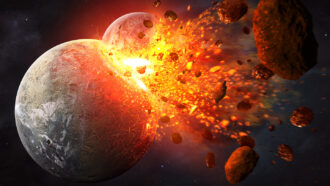 Earth
EarthOne collision could have formed the moon and started plate tectonics
A hypothetical planet slamming into Earth 4.5 billion years ago might have set subduction into motion.
By Nikk Ogasa -
 Planets
PlanetsResearch on exoplanets took top award at 2023 Regeneron ISEF
Six young researchers took home the top awards, each valued at a minimum of $50,000. Hundreds more shared nearly $9 million in prizes at international event.
-
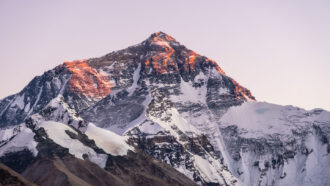 Earth
EarthScientists Say: Altitude
Altitude is used to describe heights in geography, astronomy and math.
-
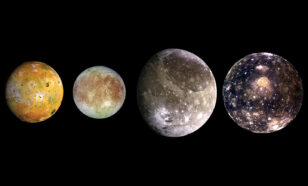 Planets
PlanetsLet’s learn about Jupiter’s moons
Jupiter has nearly 100 known moons — some of which look like prime spots to search for alien life.
-
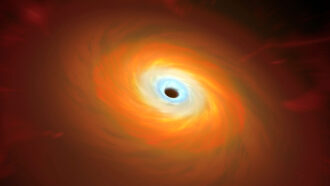 Space
SpaceScientists Say: Accretion Disk
Cosmic swirls of gas, dust and plasma, accretion disks reveal the shadowy silhouettes of black holes and more.